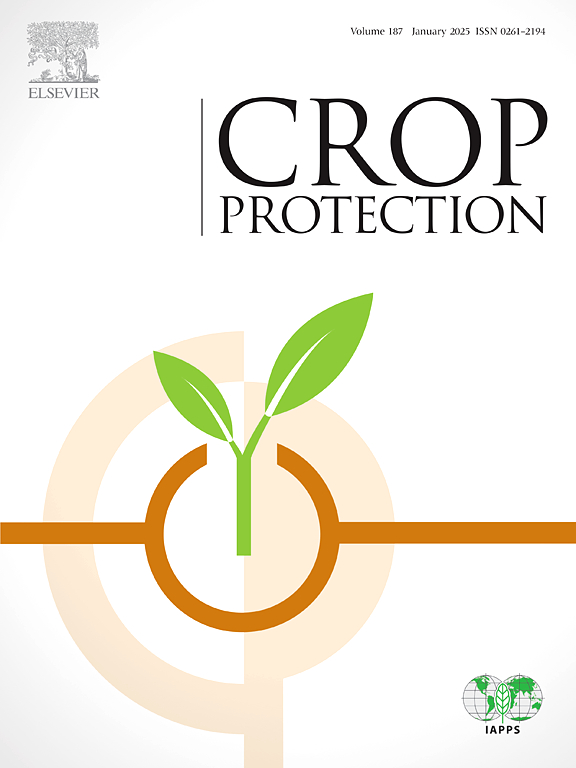Non-exemplar class-incremental learning for continual plant diagnosis
IF 2.5
2区 农林科学
Q1 AGRONOMY
引用次数: 0
Abstract
Deep learning has been widely applied as a general technique for image classification in plant diagnosis. Despite the impressive performance verified by individual classification tasks, deep learning networks suffer from forgetting the knowledge of old-type when updating the input stream by new disease samples in the continual plant diagnosis. Recently, rehearsal-based class-incremental learning approaches for plant disease classification have been proposed to mitigate the effects of old-type forgetting. These methods stored parts of leaf images of old disease, then replayed old exemplars and trained jointly with the new disease data in a class-incremental task. However, privacy issues and a considerable amount of memory limit the application of these rehearsal-based methods. In this paper, we investigate non-exemplar class-incremental learning schemes for plant diagnosis to address the catastrophic forgetting problem without requiring extra memory space for stored exemplars. We introduce a new non-exemplar class-incremental learning scheme, NeCILPD, for continual plant diagnosis. In particular, we propose an improved self-supervision learning algorithm and a novel prototype inversion constraint strategy to mitigate the problem of prototype shifts, in order to further improve the performance of few-shot class-incremental learning tasks. Experimental results confirmed the effectiveness of the proposed class-incremental learning approach. Specifically, the proposed class-incremental learning scheme achieved 70.27% accuracy and 17.80% forgetting measure in the incremental classification of 30 categories, outperforming the current SOTA method, which attained 63.80% accuracy and a forgetting measure of 24.80%. The impressive performance of the proposed non-exemplar class-incremental learning scheme provides a reliable tool for continual plant diagnosis, laying a solid foundation for agricultural applications.用于连续植物诊断的非范例类增量学习
深度学习作为一种通用的图像分类技术在植物诊断中得到了广泛的应用。尽管单个分类任务验证了令人印象深刻的性能,但深度学习网络在持续的植物诊断中,当使用新的疾病样本更新输入流时,会忘记旧类型的知识。近年来,人们提出了一种基于预演的植物病害分类分级学习方法,以减轻旧式遗忘的影响。这些方法存储旧疾病的部分叶片图像,然后在类增量任务中重播旧样本并与新疾病数据联合训练。然而,隐私问题和大量内存限制了这些基于预演的方法的应用。在本文中,我们研究了用于植物诊断的非样本类增量学习方案,以解决灾难性遗忘问题,而不需要额外的存储样本的记忆空间。我们引入了一种新的非范例类增量学习方案NeCILPD,用于连续植物诊断。特别地,我们提出了一种改进的自监督学习算法和一种新的原型反演约束策略来缓解原型移位问题,以进一步提高少镜头类增量学习任务的性能。实验结果证实了所提出的类增量学习方法的有效性。具体而言,在30个类别的增量分类中,所提出的类增量学习方案的准确率为70.27%,遗忘量为17.80%,优于当前SOTA方法的准确率为63.80%,遗忘量为24.80%。所提出的非范例类增量学习方案的令人印象深刻的性能为连续植物诊断提供了可靠的工具,为农业应用奠定了坚实的基础。
本文章由计算机程序翻译,如有差异,请以英文原文为准。
求助全文
约1分钟内获得全文
求助全文
来源期刊

Crop Protection
农林科学-农艺学
CiteScore
6.10
自引率
3.60%
发文量
200
审稿时长
29 days
期刊介绍:
The Editors of Crop Protection especially welcome papers describing an interdisciplinary approach showing how different control strategies can be integrated into practical pest management programs, covering high and low input agricultural systems worldwide. Crop Protection particularly emphasizes the practical aspects of control in the field and for protected crops, and includes work which may lead in the near future to more effective control. The journal does not duplicate the many existing excellent biological science journals, which deal mainly with the more fundamental aspects of plant pathology, applied zoology and weed science. Crop Protection covers all practical aspects of pest, disease and weed control, including the following topics:
-Abiotic damage-
Agronomic control methods-
Assessment of pest and disease damage-
Molecular methods for the detection and assessment of pests and diseases-
Biological control-
Biorational pesticides-
Control of animal pests of world crops-
Control of diseases of crop plants caused by microorganisms-
Control of weeds and integrated management-
Economic considerations-
Effects of plant growth regulators-
Environmental benefits of reduced pesticide use-
Environmental effects of pesticides-
Epidemiology of pests and diseases in relation to control-
GM Crops, and genetic engineering applications-
Importance and control of postharvest crop losses-
Integrated control-
Interrelationships and compatibility among different control strategies-
Invasive species as they relate to implications for crop protection-
Pesticide application methods-
Pest management-
Phytobiomes for pest and disease control-
Resistance management-
Sampling and monitoring schemes for diseases, nematodes, pests and weeds.
 求助内容:
求助内容: 应助结果提醒方式:
应助结果提醒方式:


